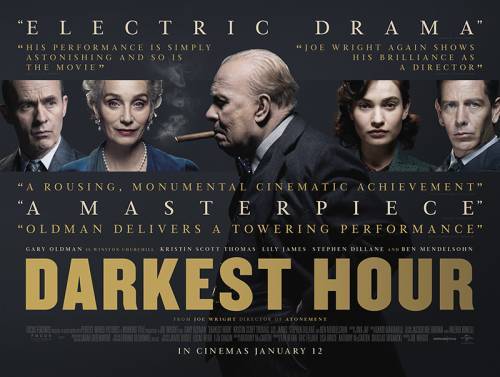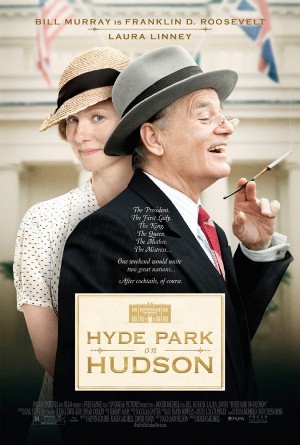Say whatever else you might want to say about 2020 as a cinematic year, at least it’s giving us five new films from Steve McQueen.
This British director is one of the most consistently interesting filmmakers working today and anytime we get new work for him, it’s a cause for celebration. His latest project is Small Axe, an anthology of five feature-length films that examines the real-life history of London’s West Indian community. In the UK, the film are premiering on the BBC while, here in the States, they’ll be premiering on Prime. Through mid-December, we’ll be getting a new Steve McQueen film every week.
The first of these films is Mangrove. The film opens in the late 60s, with activist Frank Crichlow (Shaun Parkes) opening a restaurant in London’s Notting Hill neighborhood. The restaurant is called The Mangrove and it quickly becomes a base for the community. It also becomes a target for the Metropolitan Police. PC Pulley (Sam Spruell) claims that the Frank has a history of tolerating petty crime and that the Mangrove is probably just a front for some nefarious operation. Of course, what quickly becomes obvious is that Pulley’s main problem with the Mangrove is that its owner is black and so are the majority of its customers. Pulley is an unrepentant racist, the type of man who sits in his patrol car and complains that the military hasn’t been called in to enforce the law in the neighborhood. (As obsessed as he is with the military, Pulley also says, with some pride, that he’s never actually served in the army.) When a new rookie shows up, Pulley informs him that his priority for the night is to arrest the first black person that he sees.
Every chance that he gets, Pulley raids the Mangrove. When Frank complains, he loses his liquor license. When the members of the community stage a peaceful protest (“Hands Off The Mangrove!” goes one chant), Frank and eight others are arrested and charged with inciting a riot and affray, charges that could lead to all of them spending several years in prison. (Affray is the legal term for “disturbing the peace.”) Among those arrested, along with Frank, are activist Darcus Howe (Malachi Kirby) and British Black Panther leader Altheia Jones-LeCointe (Letitita Wright). Both Darcus and Altheia insist on acting as their own counsel during the trial, giving them the chance to cross-examine the police and to also take their case directly to the jury.
Though Mangrove is a courtroom drama, the trial doesn’t being until almost an hour into the film’s running time. Wisely, McQueen instead spends the first sixty minutes of the film introducing us to the neighborhood surrounding the Mangrove and also allowing us to get to know the people who not only work there but also the ones who eat there. The film shows how, for a community of outsiders, the Mangrove became more than just a restaurant. It became a center for the entire neighborhood, a place where the members of the London’s West Indian community could safely gather. For someone like Pulley, the Mangrove was a symbol of everything that he couldn’t control and therefore, it had to be destroyed and its owners had to be humiliated. As well-handled as the courtroom scenes are, they would be considerably less effective if the film hadn’t shown us why it was felt that the Mangrove was something worth fighting for. When the Mangrove Nine go on trail, they’re not just nine people who have been unjustly accused. Instead, they represent an entire community that refuses to continue to bow down to their oppressors.
It’s an often effective film, one that is all the more powerful for being based on a true story. Much as he did with Shame, Steve McQueen makes effective use of the harsh and rather cold urban landscape that his characters inhabit. One needs only watch Frank walk down a dreary London street to understand why the Mangrove was so important to the community. As presented by McQueen, the Mangrove provides not only an escape from the harshness of the world but also a safe place to discuss how to make that world maybe a little bit less harsh for future generations. McQueen is brave enough to allow his camera to keep running, even beyond the point that most directors would have said “Cut.” McQueen shows us Frank yelling after being brutally pushed into a prison cell, as any director would. However, McQueen doesn’t cut away once Frank falls silent. Instead, his camera remains on Frank, making us feel his isolation and his feeling of hopelessness. It takes just a minute to go from the exhilaration of hearing Frank curse out his jailers to the horror of realizing that Frank is basically at their mercy.
For the most part, the actors make a strong impression, with the only false note coming from Rochenda Sandall, who plays Darcus’s partner and often seems to be performing in a different movie from everyone else. Malachi Kirby and Shaun Parkes have several strong moments as Darcus and Frank while Sam Spruell plays Pulley as being an all-too familiar monster. That said, the film is pretty much stolen by Letitia Wright, who brings both fury and wit to the role of Altheia. Whether she’s exposing the Crown’s medical examiner as a fraud or angrily reprimanding a defendant who is considering pleading guilty, Letitia Wright dominates every scene in which she appears.
Is Mangrove eligible for the Oscars? Under normal circumstances, it wouldn’t be. But, with the rule changes and the fact that Mangrove was not only selected to compete at Cannes (before Cannes was cancelled, of course) but that it also opened the BFI London Film Festival, I think a case can be made for considering Mangrove to be a feature film as opposed to being a television movie. This is a strange year so who knows? Personally, I think Mangrove deserves to be considered. If it’s not nominated for any Oscars, it’ll definitely be nominated for the Emmys. That’ll be determined in the future. For now, it can be viewed on Prime.



